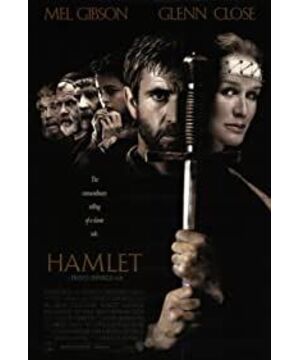If it can endure the erosion of the years, it can withstand the imaginary changes in literature, it can bear the splendid cultural praise, and it can bear the praise and learning of the world. Shakespeare, the master of literature and art in the Renaissance, used his plays to prove to the world that excellent literary works are indeed true.
As one of Shakespeare's excellent "four tragedies", "Hamlet" is deeply rooted in the hearts of the people and brings glory to the literary world of later generations by virtue of its humanistic thoughts, exquisite monologue, extremely artistic plot structure and brilliant character shaping in dramas. Adding color to the world has brought a literary festival, just like a literary grace.
As a reader who is also benefited by "Hamlet", I think it is necessary for me to say something.
"Hamlet" is a creation of Shakespeare in the middle period. How do you view his tragic creation in the middle period? First of all, we should understand the psychological background of his mid-term creation - the ideal of humanism is difficult to realize in the real society, therefore, the mid-term creation was born under Shakespeare's depression. New ideas of humanism cannot survive in Europe under feudal patriarchal rule above theocracy. Even if the new ideas are dazzling, they can only be short-lived in social reality. Shakespeare was influenced by humanist ideas, but he still had to bow his head under the old ideas and the old system. The dark and cruel social status quo could not give humanism any room for survival, the ideals were not realized, and the depression was shrouded in the creation of the mid-term. middle.
The success of the mid-term tragedy "Hamlet" written in such a psychological background is obviously related to the unique spiritual atmosphere of the Renaissance at that time, and that atmosphere cannot be repeated. Infected by the trend of humanism, one of the secrets of the success of "Hamlet" is "focusing on human nature". Human nature is a common theme all over the world. No matter which country it is placed in, readers can understand it, and there will be no cultural or Political divide. From this point of view, the audience of "Hamlet" is not affected by national borders, religions, and regional cultures, and it has formed an extremely wide reading group around the world, which is not enough to question.
"Hamlet" involves family, friendship, and love, and the "three emotions" involved are undoubtedly trying to reflect "human nature". Leiter has a deep relationship with his father and son, which made him fall into deep pain for a while after learning the truth that his father was murdered by his uncle Claudius. As for his father's death, if he does not ask questions, does not hold skeptical attitudes, is content to accept "death", conforms to this "mandate", and quietly continues to be his prince, there will be no more. Inner entanglement and confusion, and the tragic ending that leaves no room for it. But at the same time, the prince's character does not allow him to conform to this "destiny", and does not allow him to accept his mediocrity for a lifetime. Therefore, in addition to grief, the prince's character of strength, integrity, justice, and compassion also exist in his body, so there is a road of revenge with extremely rich inner drama. Hamlet is also known as The Prince's Revenge. When dealing with the question of "whether to doubt, whether to pursue the truth", Hamlet chose to doubt and pursue, which also reflects the pursuit of reason and truth in humanistic thought. Therefore, I believe that this "no return" road of revenge started precisely because of the latent humanistic thoughts in the prince, and it can be regarded as the prince's pursuit of truth and justice.
The road to revenge is not easy, not only because of Hamlet's inner entanglement in the process of revenge, the traitor obstructed, but also because Hamlet began to be skeptical of sincere friendship along the way. The once best friend once encouraged the prince to seek the truth, but in the end, he was used by the treacherous emperor Claudius, betrayed his friendship, and bowed his head to the imperial power. Greed, conceit, arrogance, these "human" natures are vividly manifested in their friendship. People are not sages, and people are human because they have human nature.
Human nature, as the key word of "humanism", is naturally manifested many times in dramas. The most direct manifestation is the shaping of character. It goes back to the "three emotions" of family, friendship and love. The relationship between all the characters in the play is carried out under these "three emotions", and even some characters do not only have one kind of relationship. Relationships, for example: Ophelia has a "love" relationship with Hamlet, and a "family" relationship with her brother Laertes and father Polonius.
People all live in the "three emotions", and the "three emotions" exist in the life of the present world, reflect the life of the present world, and pursue the life of the present world. This is undoubtedly the European society that emphasized the supremacy of theocracy in the "afterlife" at that time. A new challenge to the society at that time.
It can be said that the various things involved in revenge along the way are also a battle to pursue new ideas and try to use humanistic ideas to declare war on society.
The final act of the play ends with an extreme, more than accidental ending - the death of the representative characters. Does this ending imply that humanism, which survived in the cracks of the Renaissance, is also facing many difficulties? Along with the grief of readers, we can also experience the melancholy that Shakespeare's ideal cannot be realized in reality. Shakespeare used Hamlet's dying will to his friend Huo Xu as the final voice of the whole play. In fact, this is also a cry and a call to human nature - get up, people, and defeat evil with justice! Rise up, people, and pursue truth with reason! Rise up, people, death is not scary, what is scary is that we bow our heads to theocracy and compromise to destiny in our present life!
End with a line in the play - "The night gave me black eyes, but I use them to find light"!
View more about Hamlet reviews











